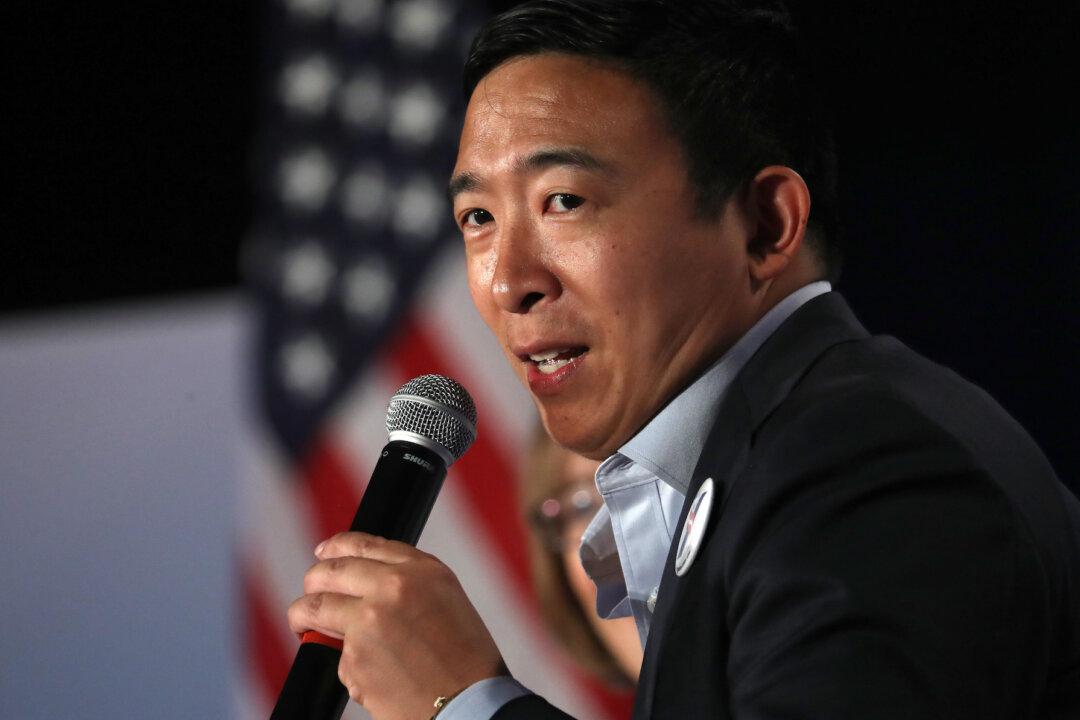Democratic presidential candidate Andrew Yang has suggested an unusual way to tackle climate change.
The New York businessman said on Sept. 19 that one possible way to address climate change could be via the cattle industry, to “modify Americans’ diets” by taxing cow “emissions,” raising the cost of beef and related products.




